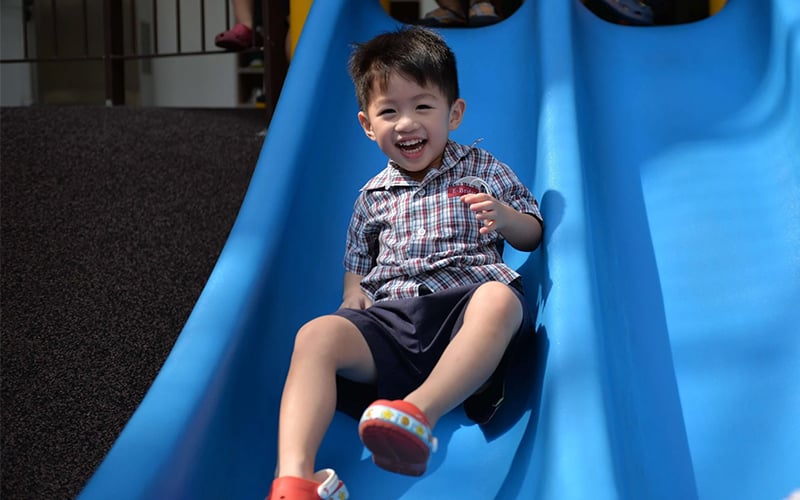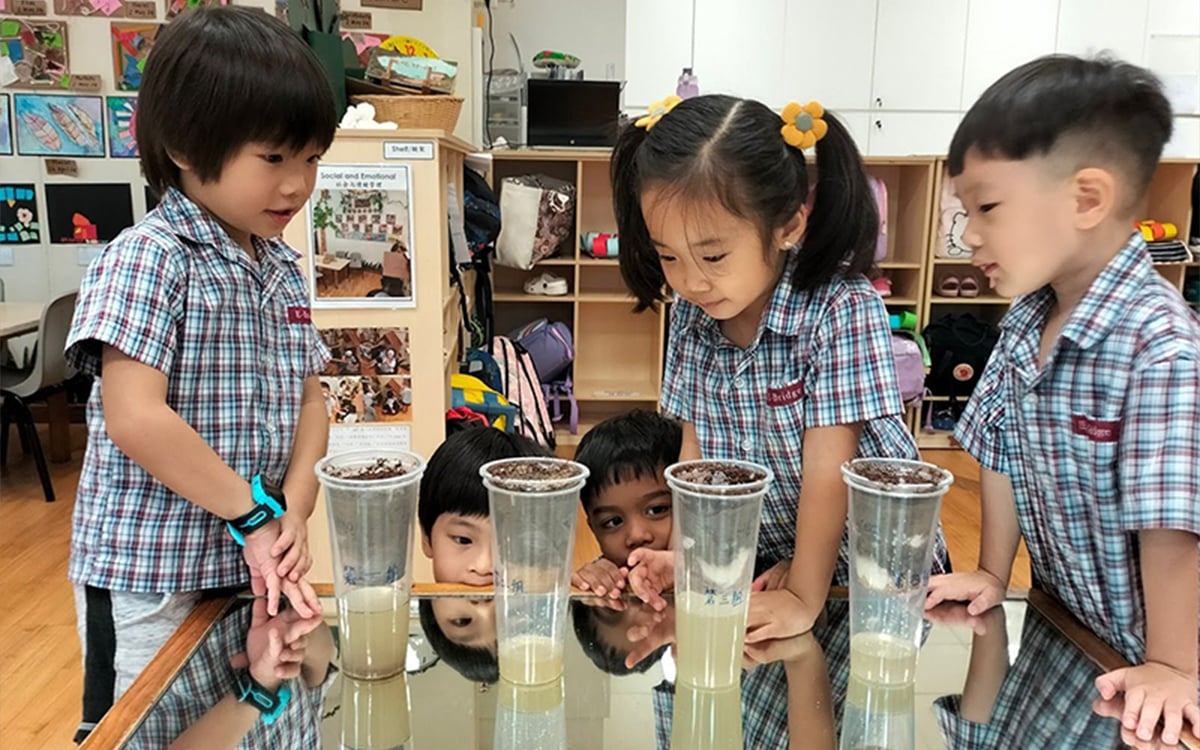Key Takeaways
- Giving children the space to make their own choices, try new things, and learn from their experiences can help foster independence in early childhood.
- At E-Bridge Pre-School, children are supported through child-led learning, self-help routines, and environments designed for choice and autonomy.
- Respectful relationships, meaningful collaboration, and learning at each child’s pace help build essential life skills from a young age.
Building Brave Beginnings: How E-Bridge Supports Independence

Independence in early childhood lays the foundation for confident, capable learners. But true self-reliance isn’t just about doing everything on their own—it’s also about being supported to explore, make decisions, and bounce back from setbacks.
From daily routines to small acts of perseverance, here’s how preschools in Singapore, like E-Bridge, play a crucial role in nurturing independence at a young age.
1. Environments Designed for Choice and Autonomy
The preschool’s environment plays a powerful role in promoting independence in early childhood. At E-Bridge Pre-School, our approach is rooted in the Reggio Emilia philosophy, which sees the environment as the “third teacher”. As such, our classrooms are intentionally arranged with open-ended materials, child-height shelves, and clearly defined learning areas. This setup empowers children to make their own decisions about what to play, how to express themselves, and whom to collaborate with.
2. Encouraging Self-Help and Daily Routines
For children, independence is built on small, everyday routines. That’s why we support children in caring for themselves and their surroundings in age-appropriate ways—from serving their own snacks to putting on their shoes or helping clean up after playtime.
Maintaining these consistent routines fosters not only self-reliance but also self-regulation and a sense of responsibility. When children learn that they can complete meaningful tasks on their own, it sets the stage for lifelong self-confidence and problem-solving skills.
3. Respecting the Child’s Voice

As a leading kindergarten in Singapore, our educators see each child as a capable, curious individual with ideas worth listening to. They engage in meaningful conversations and co-create learning experiences based on children’s interests, questions, and observations.
By valuing each child’s input, we strengthen their sense of agency and nurture independence in their early childhood. When children are encouraged to share their thoughts, make decisions, and reflect on their experiences, they develop into confident communicators and thoughtful problem-solvers. These qualities will help them thrive as they transition to Primary 1.
4. Learning at Their Own Pace
Every child grows and learns in their own time—which is why we embrace a responsive, rather than one-size-fits-all, approach to learning. Instead of rushing towards fixed milestones, our educators observe each child’s interests and developmental readiness, providing guidance that supports rather than directs.
Through child-led learning and self-directed exploration, children can engage more meaningfully with their environment and develop a deeper sense of ownership over their growth. This pace also helps reduce pressure, fostering a joyful and positive attitude towards challenges.
5. Opportunities for Problem-Solving and Collaboration
Independence in early childhood doesn’t mean doing everything alone. It’s also about knowing when to try, when to ask, and how to adapt. At E-Bridge, we organise collaborative projects and small-group experiences to create meaningful opportunities for our children. Here, we encourage them to problem-solve, share ideas, and think for themselves within a community of peers.
Whether they’re working together to build with blocks or learning to take turns with a fun science experiment, these everyday moments help children develop emotional resilience, empathy, and the confidence to make thoughtful decisions.
How E-Bridge Pre-School Helps Children Discover What They’re Capable Of
When children are given the time, space, and encouragement to try things on their own, they begin to trust in their abilities. This is how independence in early childhood is fostered—not through pressure, but through gentle guidance, meaningful choices, and the freedom to explore.
If you’re looking for a preschool near you that truly supports your child’s growth, let E-Bridge Pre-School be your first choice. Here, independence isn’t something children are told to have—it’s something they grow into, naturally and confidently. Through our thoughtfully designed spaces, respectful educator-child relationships, and Reggio Emilia approach, we nurture capable, curious learners ready to take on the world.
Find your nearest E-Bridge centre and enrol today.
